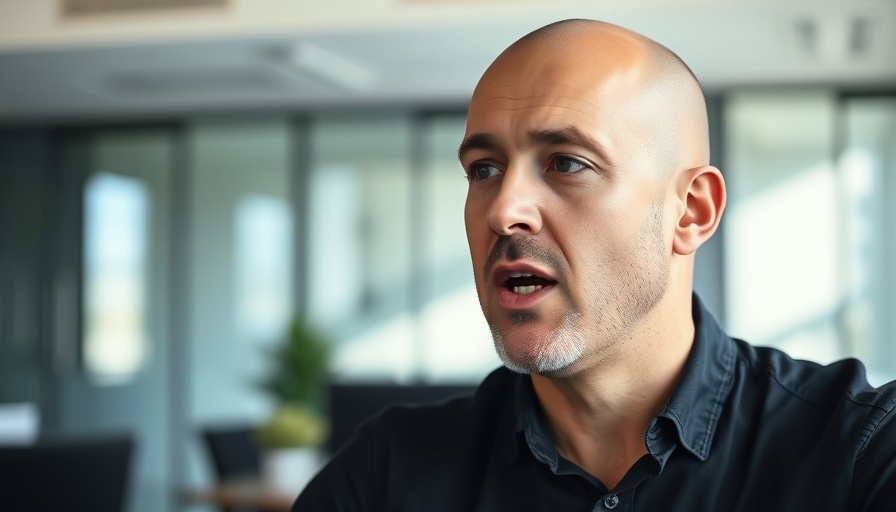
Understanding Self-Love in Entrepreneurship
Why Spa Leaders Need to Treat Themselves with the Same Care They Offer Clients
You’ve told your clients this a hundred times: slow down, breathe, and take care of yourself. Yet how often do you actually follow your own advice?
In an industry devoted to restoration and healing, spa owners and wellness entrepreneurs can quietly become their own last priority. They pour energy into clients, nurture staff, and grow their businesses—but rarely pause to refill their own reserves. Over time, that imbalance can dim creativity, erode patience, and make even the most passionate professional feel disconnected from their purpose.
But here’s the truth: self-love isn’t a luxury for business owners—it’s a performance strategy. When you take care of yourself, you make better decisions, lead with clarity, and cultivate a workplace that mirrors the wellness you promise your clients.
Let’s explore how embracing self-love can strengthen not just your mindset, but your entire business.
In 'Self Love Is Not a Weak Sport,' the discussion dives into the importance of self-love in professional settings, exploring key insights that sparked deeper analysis on our end.
When Confidence Becomes a Strategy, Not an Ego
A spa leader who values themselves radiates steadiness. There’s a quiet confidence in their tone, a presence that reassures both staff and guests.
“When you treat yourself kindly, you’re more motivated to grow—not out of fear of failure, but from a genuine desire to improve,” explains Dr. Kristin Neff, Associate Professor at the University of Texas at Austin and pioneer in self-compassion research.
Her work reveals that self-compassion fuels innovation far more sustainably than self-criticism ever can. For spa professionals, that might mean taking a creative leap on a new service menu or revising operations without second-guessing every move.
One Northern California spa manager noticed that once she stopped judging herself for not meeting “perfect” booking targets every week, she started developing seasonal promotions that reflected her genuine enthusiasm. The results? A 40 percent bump in gift card sales—and a team that felt freer to share ideas without fear of being “wrong.”
The Quiet Power of Kind Leadership
Behind every calm, thriving spa is a leader who understands that kindness and structure can coexist.
“A culture of kindness begins with the leader,” says Dr. Emma Seppälä, Science Director at Stanford University’s Center for Compassion and Altruism Research. “When leaders show compassion toward themselves, they create safer, more productive environments where people are motivated, not fearful.”
Her insight hits home in high-touch service environments. A director who reacts harshly to a scheduling mistake spreads tension through the team. One who takes a breath and handles it with empathy sets the tone for emotional safety—and ultimately, better performance.
Staff who feel seen and respected bring that same energy to guests. Clients may not be able to articulate why a spa “feels different,” but they sense it. Kind leadership is invisible marketing—it sells through atmosphere.

Rest Isn’t Time Off—It’s Strategic Maintenance
Entrepreneurial culture glorifies being busy, but the human nervous system doesn’t thrive on constant motion. When spa owners push through exhaustion, the business quietly absorbs that fatigue.
“Rest and recovery are performance multipliers, not distractions from productivity,” reminds Arianna Huffington, founder of Thrive Global.
Her point reframes rest as a professional responsibility. You wouldn’t let a facial machine overheat without a cooldown cycle; your body and mind deserve the same respect.
A small spa in Napa experimented with two-minute reset breaks between clients—deep breathing, hydration, or a quick stretch. Within months, morale lifted, sick days dropped, and customer reviews began noting how “peaceful and grounded” the staff seemed. That’s not coincidence; that’s physiological proof that care multiplies results.
Turning Setbacks into Self-Trust
Every entrepreneur hits turbulence—a sudden cancellation, a slow quarter, a new competitor opening nearby. What separates those who collapse from those who recalibrate is self-trust, the core outcome of genuine self-love.
Instead of spiraling into guilt, resilient leaders pause, learn, and adjust. One spa owner who over-expanded during the pandemic later closed her secondary location—a move that felt devastating at first. But she soon realized that concentrating on her flagship spa allowed her to deliver better client care and restore financial stability.
Self-love doesn’t eliminate failure. It simply keeps you from mistaking a tough moment for your identity. It’s the emotional buffer that turns mistakes into data and discouragement into clarity.
Returning to Purpose When Profit Isn’t Enough
Every spa has a mission statement, but only some live it. Over time, success metrics can blur into survival mode—focusing solely on revenue targets instead of remembering why you entered this field.
Reconnecting with that “why” is an act of self-love. When you remind yourself that your business exists to restore peace, confidence, and well-being, every decision starts to align again. Marketing becomes more authentic. Staff meetings feel more grounded.
A veteran spa director in Arizona shared, “When I stopped chasing every new trend and returned to the calm, nature-based philosophy I started with, our reviews improved overnight. Guests could feel that it was real again.”
Purpose, nurtured by self-respect, outlasts pressure every time.

Building a Culture That Feels as Good as It Looks
Wellness culture isn’t created by slogans—it’s built through consistent habits that reflect the values on your walls.
Some spas begin team meetings with gratitude rounds; others schedule quarterly retreats focused on mindfulness or communication. Even five minutes of collective breathing before opening hours can shift the energy of an entire day.
The key is authenticity. When your staff witness you making space for your own wellness—leaving on time, eating lunch away from the computer, taking continuing-education days—they learn that balance isn’t theoretical. It’s leadership in action.
A culture that feels good internally inevitably looks good externally. Clients pick up on harmony just as they notice chaos. Self-love, when modeled by leadership, becomes the quiet backbone of brand reputation.
Leadership Grounded in Wellness
In the spa world, leading with love isn’t a cliché—it’s competitive advantage. Self-love keeps ambition aligned with purpose, and growth aligned with well-being.
It gives you the clarity to make confident choices and the humility to admit when you need rest. It helps you hold your team accountable with empathy, not fear. And it reminds you that the way you treat yourself sets the tone for how your entire business operates.
So, pause. Take a mindful breath before the next meeting or client. Step back and remember: you’re not just building a spa—you’re shaping a sanctuary, for others and for yourself.
 Add Row
Add Row  Add
Add 




Write A Comment